The best genre shows on Netflix
The best TV sci-fi, horror, fantasy and superheroes to binge-watch on Netflix
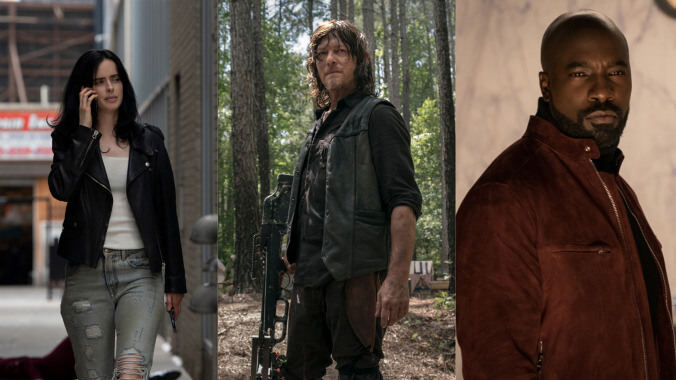
Streaming libraries expand and contract. Algorithms are imperfect. Those damn thumbnail images are always changing. But you know what you can always rely on? The expert opinions and knowledgeable commentary of The A.V. Club. That’s why we’re scouring both the menus of the most popular services and our own archives to bring you these guides to the best viewing options, broken down by streamer, medium, and genre. Want to know why we’re so keen on a particular show? Click the movie title at the top of each slide for some in-depth coverage from The A.V. Club’s past. And be sure to check back often, because we’ll be adding more recommendations as shows come and go.
A note to desktop users: If you’d like to view this story in a scrolling layout, you can narrow your browser window.
Also check out our lists of best drama series, comedy series, and movies on Netflix.
3% isn’t great television, but it’s a hell of a lot of fun, the kind of program tailor-made for bingeing—breezy yet smart enough to avoid sudsy operatics, the equivalent of a page-turning beach read you don’t feel guilty about downing in one sitting afterwards. (Like most books people actually read these days, it’d probably be categorized as “YA.”) It tells the story of a near-future earth devastated by climate change and overpopulation, where most people live in squalor. However, every year, all the 20-year-olds on the planet have the opportunity to participate in a series of tests, only 3 percent of whom pass. The winners get a chance at a virtual paradise of a life, moving by submersible to live on an elite outpost called The Offshore, where there are sufficient resources for a small population of the earth’s best and brightest, the ostensible beacon of humanity. []
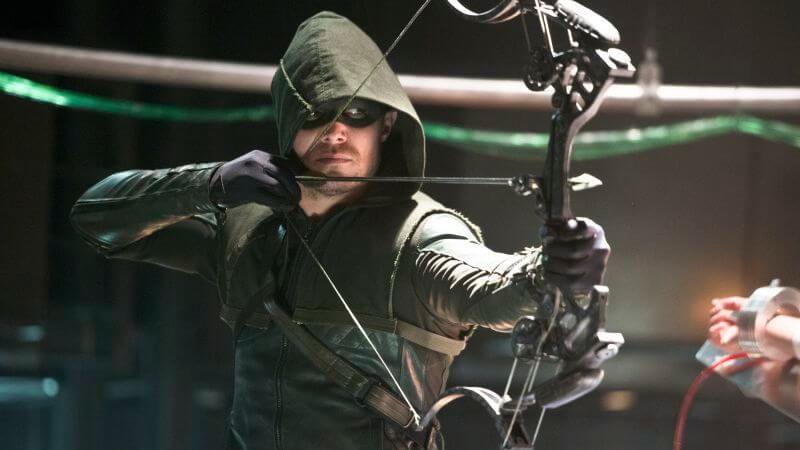
In the very first episode of Arrow, the camera pans across the beach of the deserted island where billionaire playboy Oliver Queen was supposedly stranded alone for five years, and zooms in on the iconic black and orange mask of classic comic villain Deathstroke with an arrow stabbed through its eyehole. The implication was clear: For all of the Christopher Nolan trappings and overt rejection of unrealistic comic book-y aesthetics, this is going to be a superhero show. The CW won’t scare off viewers by saying a ridiculous name like “Deathstroke” (or even “The Green Arrow”) right away, but some characters from the comics will pop up sooner rather than later.And pop up they did: Over the course of the first two seasons, Arrow not only put Slade Wilson in his full Deathstroke armor, but also featured appearances from other famous DC villains like Merlyn, Count Vertigo, the Royal Flush gang, Firefly, Deadshot, and even the Suicide Squad (complete with a Harley Quinn cameo, years before Margot Robbie started swinging a hammer around), not to mention some not-so-vague references to mega-villain Ra’s Al Ghul. By the end of season two, Oliver already had a sidekick, his city had been terrorized by multiple supervillain plots, his sister was given her own doorway into the superhero life, he answered the prayers of ’shippers by starting a romantic relationship with tech whiz Felicity Smoak, and—oh yeah—his friend Barry Allen got zapped by lightning, setting the stage of The Flash and the expansion of what would eventually be called the Arrowverse. []
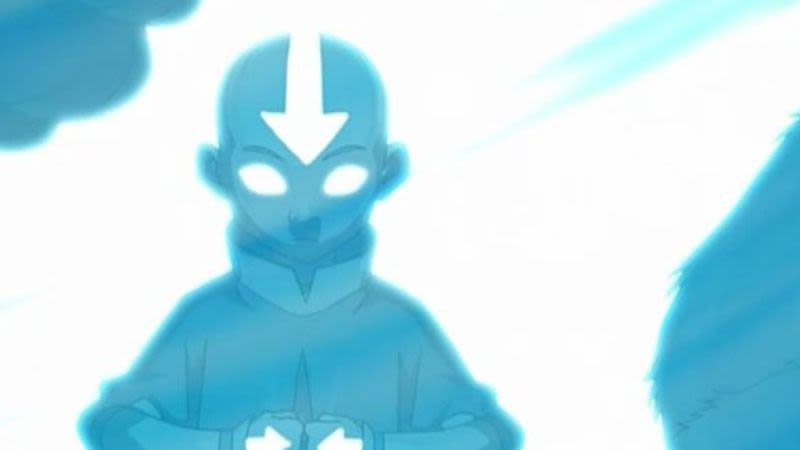
Twelve years after its finale, Avatar: The Last Airbender continues to stand out for its striking combination of gravitas and levity. While the overarching narrative is a carefully crafted epic inspired by Asian mythology and philosophy, the show never forgets that there are a thousand mundane and funny moments that take place between every grand one, and it is this delicate balance of both solemnity and humor that ultimately elevates the story above a simple hero’s journey narrative and makes it truly memorable. []

A show so striking it became a meme, Black Mirror’s reflections on how technology and human desires interact have fallen out of favor of late. But while series creator Charlie Booker’s imagination has its limits, Mirror’s weaker episodes don’t detract from its best. At its heart, the ongoing anthology is less a condemnation than a confession: No matter how sophisticated our computers get, people are just people, and nothing will save us from ourselves. []
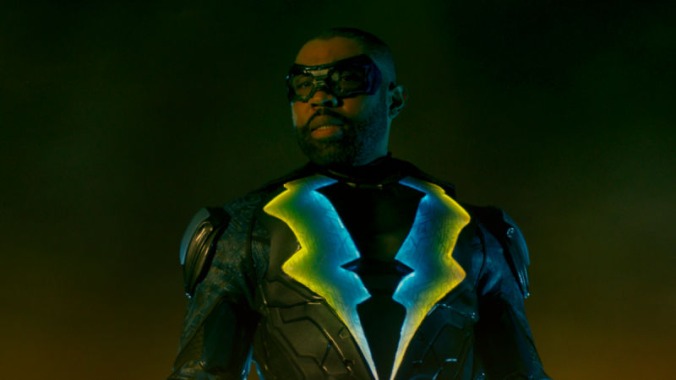
This superhero drama from veteran TV creators Salim Akil and Mara Brock Akil was a blast of fresh air when it premiered on The CW, which has quickly become the network home for , , and . Starring Cress Williams as the eponymous DC hero, Black Lightning centers on an underrepresented and underserved community, but maintains a high-flying attitude. The series is powered as much by its tight-knit cast—which includes Nafessa Williams, China Anne McClain, and Christine Adams—as its grounded storytelling, which still offers plenty of humor and satisfying throwdowns with Freeland’s villains. Season one set the stage for Black Lightning’s comeback, and the emergence of his two daughters (Williams and McClain) as fledgling crimefighters. The ass-kicking Pierce family will have its work cut out for itself in the new season, which is full of new threats, including a familiar face (Marvin “Krondon” Jones III as Tobias Whale). And no, there’s still no hint of a crossover with the rest of the Arrowverse, but frankly, Black Lightning doesn’t need ’em. []
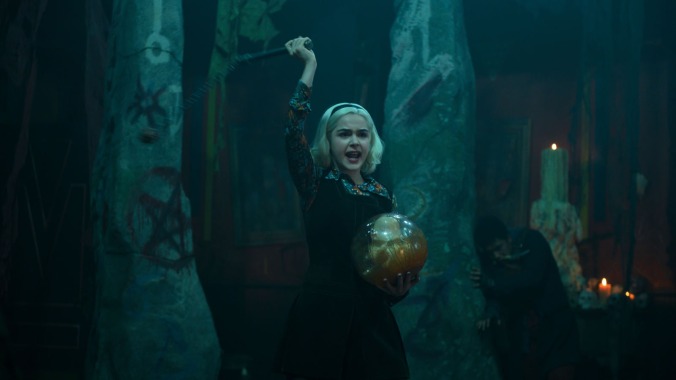
Adolescence gets a fiendish makeover in Chilling Adventures Of Sabrina, a supernatural drama from showrunner Roberto Aguirre-Sacasa (the Archie Comics’ creative officer who’s written several titles, including the one on which this series is based). Kiernan Shipka stars as the titular teen witch, who’s facing a life-altering choice on the eve of her not-so-sweet 16: stay in the mortal world and live a “normal” life, or join her aunts (played by Lucy Davis and Miranda Otto) in service of the Devil. Season one’s central question—will Sabrina choose high school clubs over a coven?—is complicated by Doctor Who’s Michelle Gomez as her (tor)mentor. But though Sabrina struggles to figure out where she fits in, Shipka looks perfectly at home as the series lead. If you dig , Aguirre-Sacasa’s ported over the house style he established on The CW, so expect foggy landscapes, muted palettes, and multiple pops of Cheryl Blossom’s signature color. But when it comes to teen turmoil and the unique pressures put on young women, Chilling Adventures seems to borrow as much from the haunting 2016 film . []
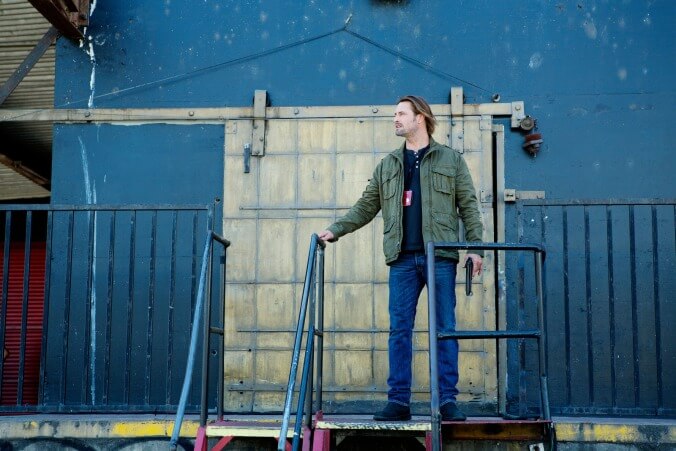
The idea of alien conquerors may not be new, but USA’s Colony puts a great spin on it: Not only is humanity put to work in the territories occupied by their new overlords, but the invaders don’t ever make an appearance. Daily life becomes a cat-and-mouse game between the small pockets of resistance and the well-intentioned collaborators trying to minimize the bloodshed, with Josh Holloway’s family-man cop trying to straddle both sides of the fence. It makes for a delightfully fun and fraught viewing experience. []
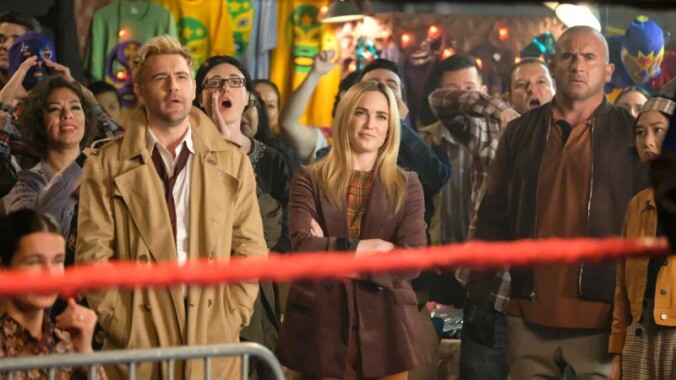
Other shows stop may stop and ask, “Why?” Legends Of Tomorrow, though, asks the far more potent, “Why the fuck not?” The decade’s best superhero show consistently dazzled us with a narrative approach best described as “bonkers,” but its greatest trick was doing so without abandoning emotional heft. Sure, the Legends fused into a giant blue fuzzy god to defeat a demon. The real accomplishment was managing to fill our hearts simultaneously. What a gem. []
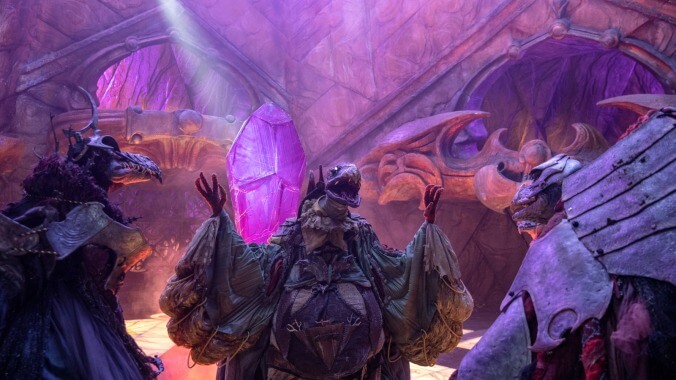
The Dark Crystal is a tremendous filmmaking achievement that’s only a pretty good movie. ; definitive proof that film is a collaborative medium, and a formative experience for the devoted cult that saw it when they were young and have now passed it onto their children. But also a B-, B if you’re feeling generous. Like many other big-budget genre blockbusters flying in Star Wars’ contrails during the early 1980s—David Lynch’s Dune comes to mind—it puts a fully realized, authentically unearthly realm on the screen, and then fails to give that place much in the way of a narrative.Another world, another time, : Netflix funds a return trip to Thra, winding the clock back to before the emergence of the heroic Jen and Kira, to an era when the elfin Gelfling and the monstrous Skeksis lived in tenuous (and, it turns out, entirely bogus) harmony. And a moment when the grand ambitions of Jim Henson, Frank Oz, Brian and Wendy Froud, David Odell, and countless others are realized in The Dark Crystal: Age Of Resistance. []
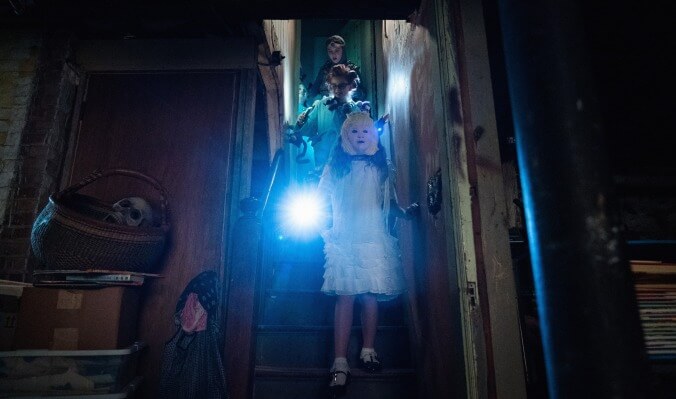
Demonic possession and divine vision seem like an odd fit for Robert and Michelle King—only if you haven’t been following what they’ve been up to since The Good Wife ended. The Kings already dabbled in the unearthly with their one-and-done body-politic-snatching satire BrainDead, and their latest effort for the Tiffany Network, Evil, starts out grounded in the topical, post-Trump, reality-versus-unreality tension that drives their CBS All Access spin-off The Good Fight. Call it The X-orcist Files: Forensic psychologist Dr. Kristen Bouchard (Katja Herbers) is pulled out of the courtroom to help the Catholic Church distinguish between cases of genuine hell-on-earth and garden-variety delusion, alongside priest-in-training David Acosta (Mike Colter) and resident skeptic Ben Shakir (Aasif Mandvi). Despite some familiar trappings, it’s a lack of knowing that sets the tone for Evil’s early going, the protagonists haunted by startling outcomes and a shadowy figure of seemingly bottomless wickedness played by Michael Emerson. Eventually, Evil’s mysteries start to come into focus, but this much is always certain: There hasn’t been anything this stylishly unsettling on network TV since Hannibal. [Erik Adams]
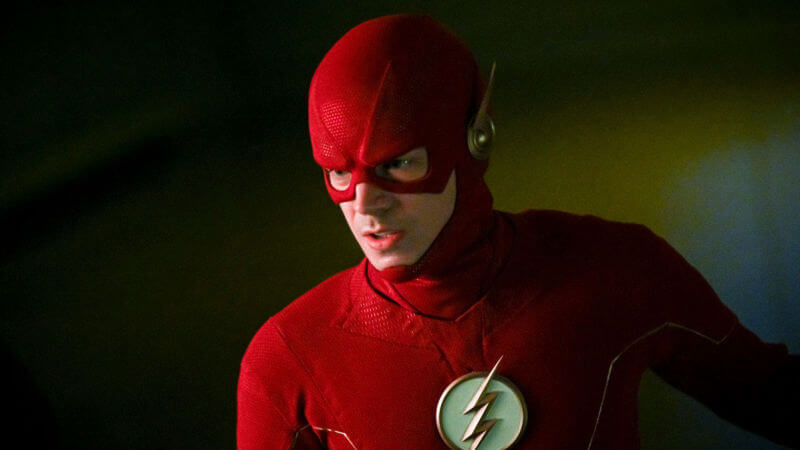
No current superhero TV show captures the energy and scope of superhero comics like The Flash. It doesn’t shy away from the campy, colorful roots of its lead hero, instead marrying them to the soapy elements that characterize the majority of The CW’s output, resulting in a series that has as much interpersonal drama as it does superhero spectacle. After a stellar first season, The Flash has just gotten bigger and better, drawing even more influence from comics as it incorporates multiple Earths into the plot, adding as well as a terrifying new speedster villain: Zoom. The series manages to make all these lofty superhero concepts accessible and palatable, and the story is anchored by rich, grounded performances, particularly Grant Gustin’s endearing, lovable Barry Allen, Jesse L. Martin’s incredulous, affectionate Joe West, and Tom Cavanagh’s remorseful Harrison Wells. The main attraction of this series is still the excitement the creators have for DC superheroes, best exemplified by that featured seven costumed crimefighters (including two reincarnated Egyptian hawk-people) taking down an immortal with a deadly grudge. []
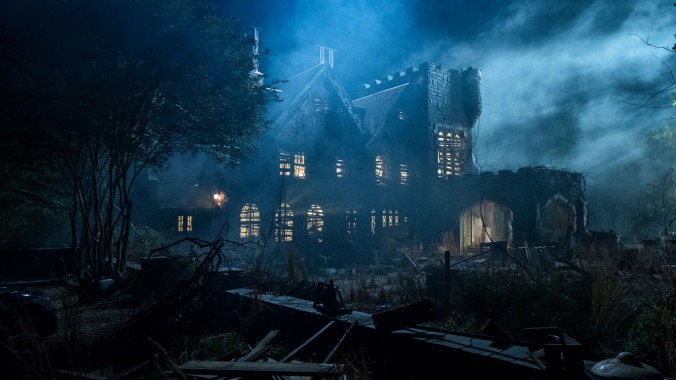
Although it opens with a recitation of the famous first paragraph of Shirley Jackson’s classic in the use of subtlety in horror, Mike Flanagan’s Netflix version of The Haunting Of Hill House might be the most radical take the 1959 novel has ever received. (And yes, that includes the one where Owen Wilson gets his head knocked off by an evil fireplace.) Flanagan—whose credits include and Netflix’s recent —has reimagined Jackson’s quartet of disconnected researchers and “sensitives” as a family of damaged people, all traumatized by the time they spent in the titular structure as children. Timothy Hutton leads the cast as their dad, dealing with his own demons, and trying to stop the house from getting a taste of his kids. Flanagan looks to be mostly eschewing big spooky jump scares in favor of a more dreamlike atmosphere, and the firm belief that no ghost can be scarier than your own fucked-up kin. []
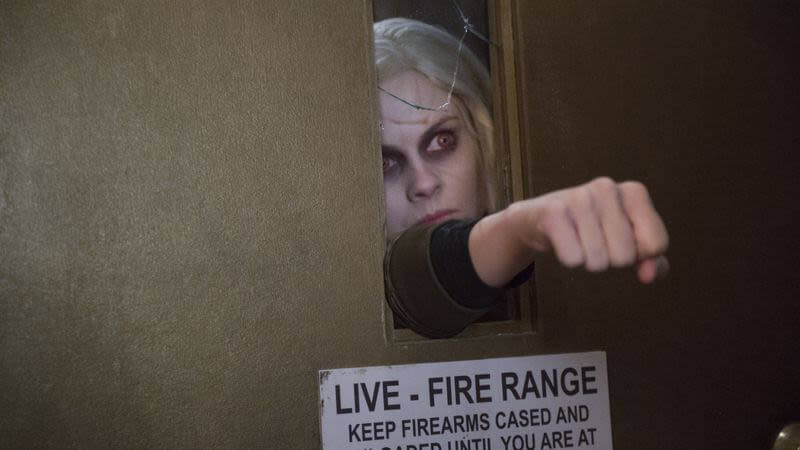
iZombie has an astronomical degree of difficulty: First of all, it takes a lot for a zombie show to stand apart from TV’s current crowd of shuffling undead. Second of all, its premise should absolutely, unequivocally not work: At a boat party, Liv Moore (punny names will get you everywhere, show) is attacked by a horde of revelers hopped up on the harmful combination of a designer drug and a trendy energy drink. This chemical cocktail leads to a form of zombieism, which Liv finds out about when she wakes up the next morning—extremely pale and craving brains—in a body bag. Despite this ridiculous setup—and the fact that medical examiner Liv picks up the personality traits and memories contained within her life-after-death sustaining snacks, whose murders she helps to solve—iZombie turned out to be one of the 2010s’ brainiest (seriously: not a show for the wordplay-averse) supernatural thrill ride. Given the involvement of alumni Rob Thomas and Diane Ruggiero-Wright, that should come as no surprise; in its witty banter, noir-tinged cases of the week, and deep bench of supporting talent, iZombie is like a Veronica Mars redux that can pin the influence of to its bloody sleeve. And Rose McIver’s Liv certainly lives up to the sterling examples set by the Marshmallow and the Slayer. Hers is a multifaceted performance that doesn’t quite require the thespian acrobatics of Tatiana Maslany’s roles, but does give the actor the weekly challenge of hanging on to the person Liv was before that fateful boat party, all the while adopting the mannerisms and impulses of the people she’s linked to in death. []
Nothing, not even its spellbinding trailer, can prepare you for the varied adventures that await in Dreamworks and Netflix’s Kipo And The Age Of Wonderbeasts. Hopeful and dazzling, the story follows a chipper underground dweller named Kipo (Karen Fukuhara), whose hidden community is ripped apart by a merciless beast. Separated from her family and forced to the “surface world,” Kipo links up with a number of lone wanderers—an emotionally stunted spark plug named Wolf (Sydney Mikayla), a young music enthusiast named Benson (Coy Stewart), and Benson’s mutated beetle companion, Dave (Deon Cole)—and traverses the land in search of her father. Their journey is littered with some of the strangest and coolest hybrid communities one could hope to meet, like lumberjack kittens, perpetually hungover rocker snakes, and a pack of Mensa-ready wolves—one of which is voiced by RZA. Throughout their search for stability, the motley crew of young adventurers often find themselves weighing the benefits of solitude versus their packlike dynamic and begin to understand what it means to sacrifice and legitimately care for others, which can be especially difficult if you’ve never felt properly cared for yourself. In Kipo, a group of castaways learns to become a family against mesmerizing backdrops and an unfairly amazing soundtrack. []

The highly anticipated sequel series to , takes place 70 years after the end of the first series and follows Korra, the Avatar after Aang. Following the reincarnation cycle, Korra is born into the Southern Water Tribe. Unlike Aang, she has a natural knack for bending multiple elements from a young age, and is confident and enthusiastic about her abilities from the beginning. In fact, the very first words she utters on screen are “I’m the Avatar! You gotta deal with it!” But Korra has grown up insulated from the outside world, protected in a compound by the Order Of The White Lotus. Her sheltered upbringing is one of the reasons why, though Korra excels in water-bending, earth-bending, and fire-bending, she struggles to connect with the spiritual aspects of being the Avatar, which is directly linked to the one element she has never been able to bend—air, the most spiritual of the elements. []
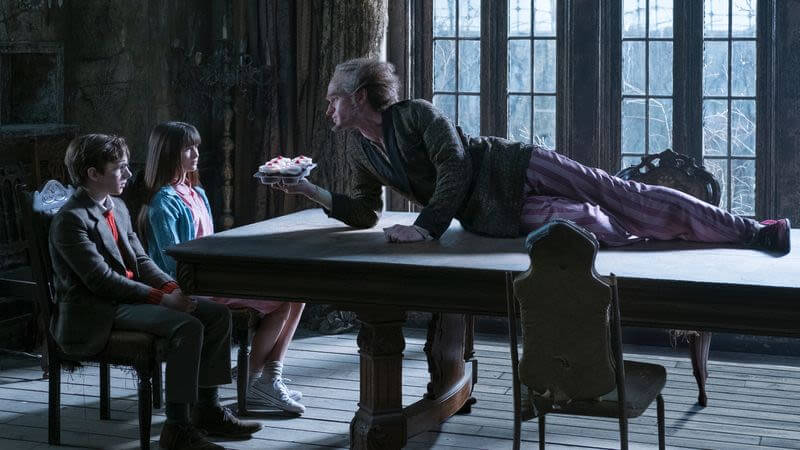
wasn’t . But it was, if you’ll forgive the Snicket-esque wordplay, the most unfortunate victim of that post-Harry Potter trend. The exaggeratedly morose misadventures of Violet, Klaus, and Sunny Baudelaire aren’t meant to be condensed into a single installment, the way they were in the 2004 Unfortunate Events film directed by Brad Silberling. The orphans’ search for answers about their parents, their parents’ untimely demise, and the fire that caused their parents’ untimely demise was an ongoing story. After all, the word “series” is prominently placed within the title, right after the indefinite article and the books’ pseudonymous scribe, a nom de plume of Basic Eight author and Magnetic Fields accordionist Daniel Handler.Thirteen years later (an appropriate number), A Series Of Unfortunate Events makes a smooth transition to Netflix, with help from Handler and executive producer Barry Sonnenfeld, both of whom were involved () with the movie version. To paraphrase the series’ own tongue-in-cheek metacritique of the cinema, “It’s so much more convenient to consume entertainment from the comfort of your own home”—and it’s so much more convenient to retell Handler’s epic tale of woe and whimsy when each novel gets two 42-minute episodes to set the mood, to steep in the wit, and to integrate the interjections of the tangent-prone Snicket (played here by Patrick Warburton). Turning a series of popular books into a TV series might not have been the obvious route in the ’00s, but in our era, it’s the smartest. []
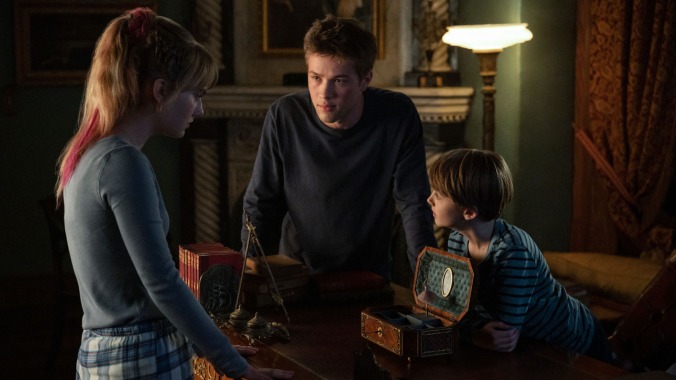
After a long, serpentine road to production—including a change in medium, from film to TV—it’s finally time to unlock the mysteries of Locke & Key. The series, from Carlton Cuse and Meredith Averill, is based on Joe Hill and Gabriel Rodriguez’s time-leaping, Eisner-winning comic book series. Adaptations were previously in development at Fox and then Hulu before Netflix finally locked in on Cuse and Averill’s vision. A pilot was even shot for Fox in 2011, but the network decided not to pick it up. In the show, the Locke kids—older siblings Tyler (Connor Jessup) and Kinsey (Emilia Jones), and moppet Bode (Jackson Robert Scott)—move into their “ancestral home” after their father’s murder, but the healing process is held up by assorted enigmas, including a bunch of keys they both are and aren’t supposed to use. Like the source material, the series will grapple with grief, the concept of home, and oh yes, lots of demons and spirits. If Cuse and Averill dig into intergenerational trauma, it could be the key to another -level hit for Netflix. []
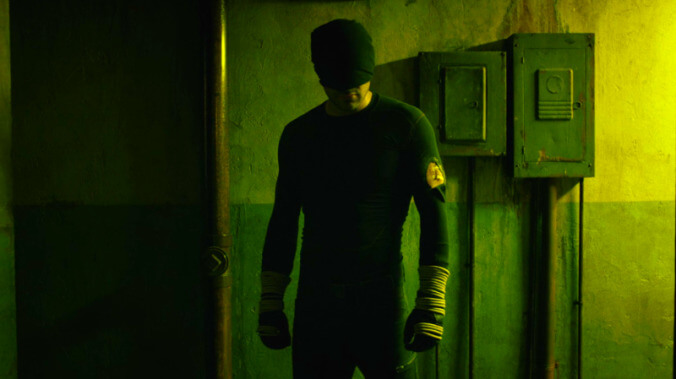
With the Marvel Cinematic Universe expanding into infinity, the idea of five series coming to Netflix on top of existing movies and TV shows could have been the bridge too far. Thankfully, the first of those series dispelled those worries almost immediately—or rather, artfully beat them into submission. As envisioned by Drew Goddard and Steven S. DeKnight, Daredevil was a taut and brutal affair that took advantage of its lower profile to tell a much darker and more involved story than anything the MCU’s big-screen efforts have tackled, setting events in a Hell’s Kitchen that was rendered a virtual no man’s land following . Charlie Cox’s portrayal of Matt Murdock healed the damage done to the character by , conveying his conviction and the toll of his crusade; and Vincent D’Onofrio’s Wilson Fisk became the most fascinating villain in Marvel’s stable with his conception of himself as the story’s hero. []
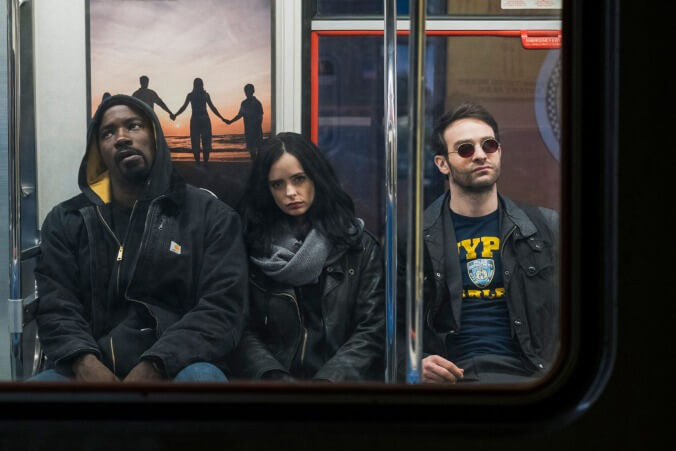
It may not have been able to live up to the outsized expectations generated (especially after news broke that Sigourney Weaver was cast as the villain), but there’s a lot to like in the all-star team-up between the four leads of the initial individual Netflix MCU shows. Just the chance to watch Jessica Jones deliver withering put-downs of her fellow heroes made it worth it, but the show contributed some other notable strengths: Well-coordinated fights that took advantage of pairing up their various powers; transforming Danny Rand from his nigh-unbearable self in season one of Iron Fist to a more comic-relief figure; and—in —a smart fusion of wisecracking superhero quips and compelling bad-guy beatdowns. It spent too much time clearing its throat and hemming and hawing over its various personalities, but in the end it delivered enough flash and fun to merit our time. Did we mention it made Danny Rand bearable? That’s accomplishment aplenty. []
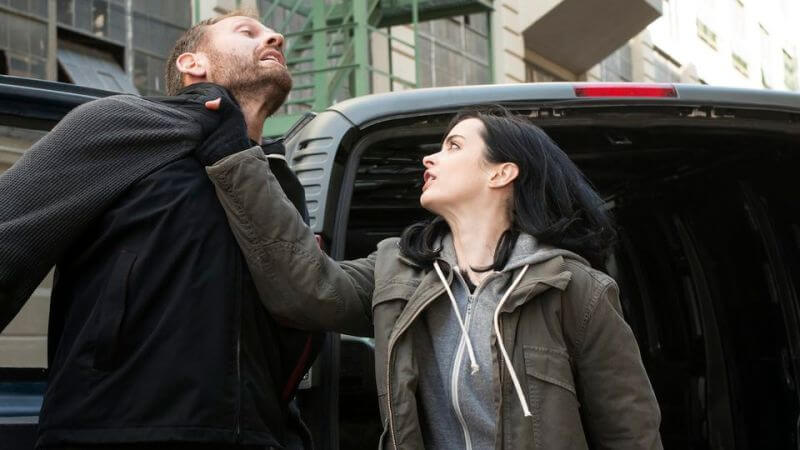
Krysten Ritter is an incredibly versatile actor, compelling in her short but memorable turn on and then fiercely hilarious on the short-lived . And with Jessica Jones, she does her best work to date as the whiskey-slinging private investigator. Jessica has moments of intense strength (literally) and moments of intense vulnerability, and Ritter nails it all. And David Tennant is equally successful as the depraved Kilgrave. Despite his superpowers, he seems so real—his actions and words mirror the way abusers treat and speak to their victims in real life. (Kilgrave isn’t just a supervillain. He’s an abusive ex.) His evil masterplan isn’t some spectacular goal like taking over the world or destroying a government. He just goes through his life taking whatever he wants and raping and manipulating young women, and as a result, Kilgrave became the most terrifying supervillain Marvel has ever tackled. Jessica Jones works brilliantly with this part of the story, and the whole season explores abuser dynamics beyond just Kilgrave, making for very dark but very smart television that digs much deeper than a “hero versus villain” tale. Mike Colter and Rachael Taylor round out the cast with compelling performances, and Taylor’s Trish Walker becomes a breakout character—more than just a mere sidekick. []

Similar to its comic book counterpart, Luke Cage was the MCU’s first series to center on a black lead, which showrunner Cheo Hodari Coker used to launch an exploration of blackness, one that starts with the setting: the historically black neighborhood of Harlem. Matt Murdock and Wilson Fisk may hem and haw about “my city,” but Daredevil and Jessica Jones’ Hell’s Kitchen never felt as characteristic as Luke Cage’s Harlem. The celebrated New York neighborhood has a reputation for being a hotbed for black culture, which Coker used to the show’s advantage, whether highlighting some of the world’s most prominent black artists on the stage of Harlem’s Paradise, reckoning with the realities of gentrification alongside Mariah and Cottonmouth, or fanboying over Method Man in a bodega. The first season understandably gets some flak for taking a left turn three-quarters of the way in, leaning hard into the realms of camp as Diamondback was introduced and the show explored Luke’s origins. But how the show examined the various aspects of blackness, coupled with confident direction and strong performances from Alfre Woodard, Mahershala Ali, and Simone Missick, positioned Luke Cage among the most promising of the Marvel Cinematic Universe’s small-screen properties. []
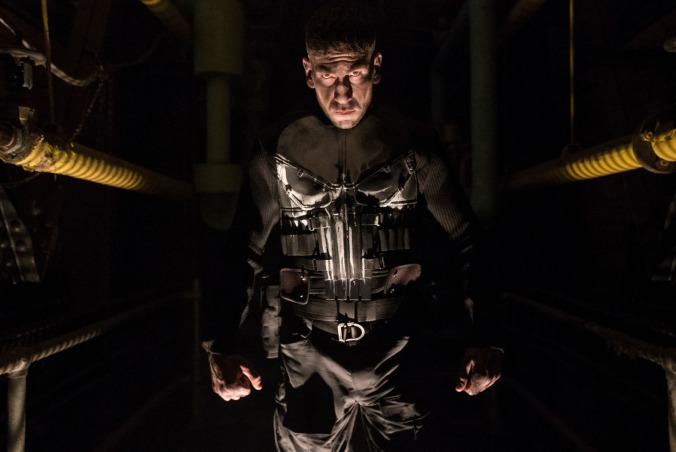
He may have started as an antagonist in season two of Daredevil—and not even the primary villain, at that—but Jon Bernthal’s interpretation of the Punisher was so electric, so raw, and so damn watchable, it wouldn’t be surprising if Netflix was scrambling to sign him up for a solo series before the bodies had stopped twitching on the ground of the prison hallway in his brutally compelling fight sequence. As Frank Castle, Bernthal plays a man obsessed with killing anyone and everyone even indirectly responsible for the death of his wife and child, only to become ensnared in a conspiracy that reaches back to his days as a special forces soldier. The initial season was a triumph of exploring masculine identity, a fierce and unvarnished look at the development of a man’s psyche both before and after family. Better still, for as good as the battle scenes often were, the tense back-and-forth conversations between Frank and Ebon Moss-Bachrach’s David Lieberman, a.k.a. Micro, were some of the most honest and intimate discussions between men yet seen in the MCU. []
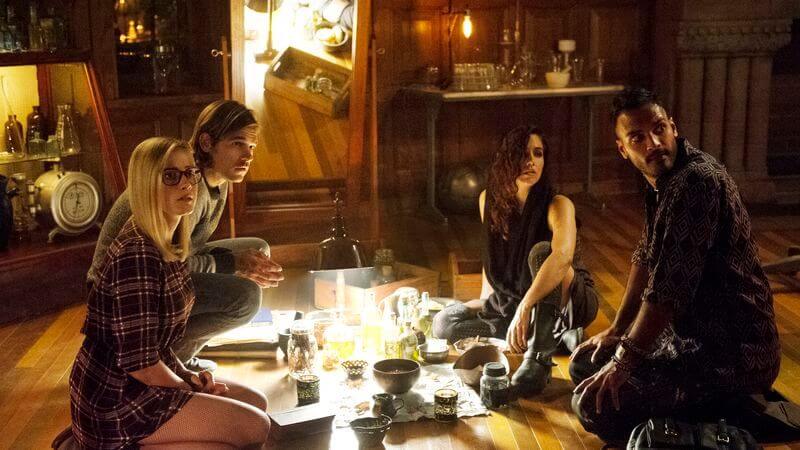
In the first moments of its pilot, established what one of its deepest pleasures was going to be. The camera pans over a gray and gloomy city scene, with piles of old snow on the ground, a chilly wind blowing, and people bustling about. The focus lands on a nondescript, graffittied metal door of the kind found on countless city streets, and then suddenly the door swings open to reveal a golden-tinged, idyllic-looking pasture. It’s drastically different from what we’ve just seen: lovely and warm, and totally impossible. A man strides through; the door shuts. Magic is real—it’s just hidden unless you’re special enough to know how to look for it. []
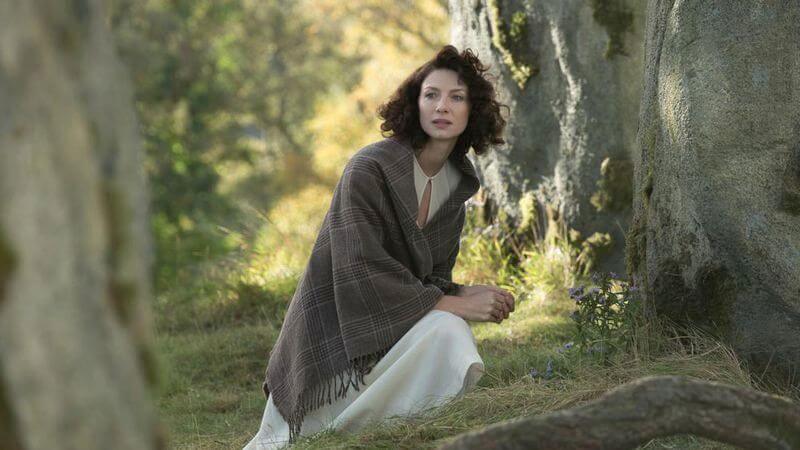
Based on the eight-novel series by Diana Gabaldon, Outlander pulls the best bits from historical fiction, soap, and fantasy to create a world that promises mystery, sex, peril, and fun… eventually. Unfortunately, the pilot merely hints at each of these elements, resulting in an ambitious premise executed with great restraint. In some ways, the premiere’s cautious pacing works: There’s a lot to digest from a story that throws history, romance, and time-travel into the pot. But easing viewers into this complex world makes for a very slow start. []
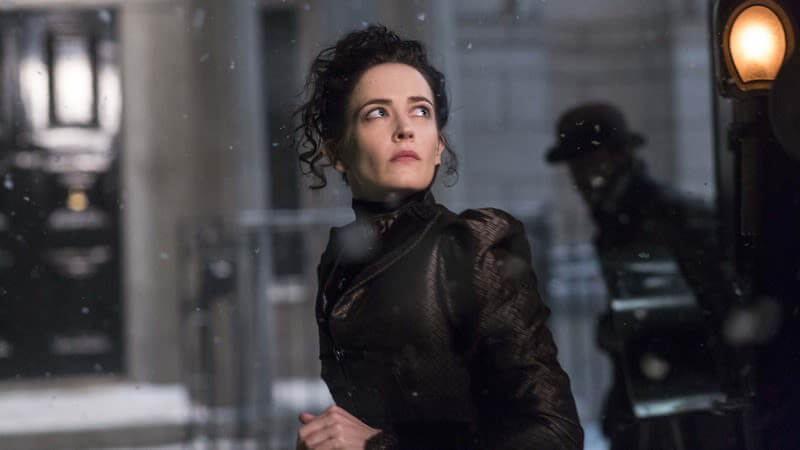
Perhaps Universal’s Dark Universe plans failed because we’ve already got an excellent dark universe right here. In Penny Dreadful, writer-creator John Logan works vampires, werewolves, witches, and more—complete with Frankenstein and his monster, of course—into a riotously entertaining horror-laced vision of turn-of-the-century London. But one aspect of this fine series towers above the rest; so once more, let’s applaud the show that may as well be named Eva Green Presents Eva Green And Friends Starring Eva Green. []
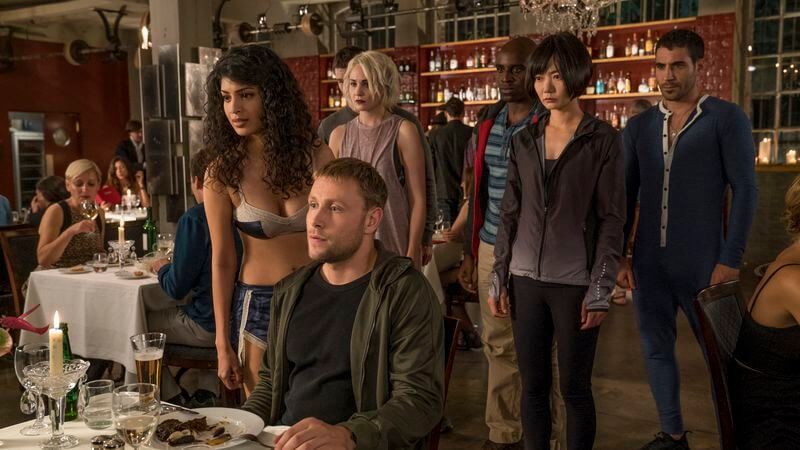
Passionate, exuberant, and joyous, Sense8 is an utterly unique series. A celebration of connection and empathy, the show took viewers on a whirlwind, worldwide adventure, complete with strong performances, creative twists, and the kind of spectacle rarely seen outside the MCU. Whether on a secluded rooftop in South Korea or among the crush of the São Paulo Pride Parade, Sense8 argues that no one’s ever truly alone, if they open themselves to acceptance and love. []
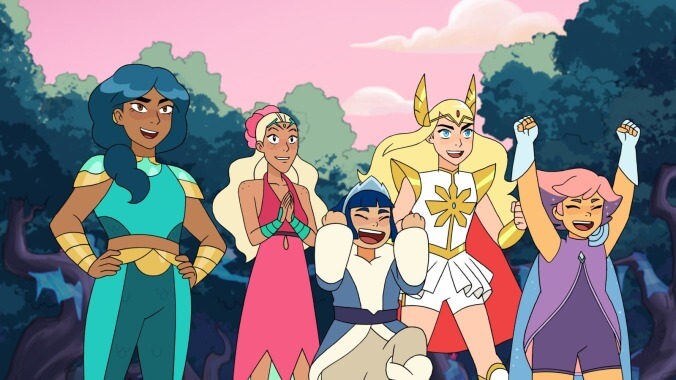
In this inspired take on the character best known in the ’80s for being He-Man’s twin sister, the new She-Ra has the most powerful female presence on this list. Adora (Aimee Carrero) is an orphan who’s been raised by the Horde, an evil army that aims to take over the planet Etheria. Then she finds a magical sword that turns her into She-Ra, and winds up leaving the Horde to hang with the brave rebel princesses of the show’s title. This fairly straightforward tale of good versus evil becomes more nuanced through the feud between Adora and Catra (AJ Michalka), former best friends now on opposite sides of the fight, as well as fantastical battles that span portals and dimensions. She-Ra’s gripping season-long quests and adventures will keep kids riveted, especially as it veers into alternate realities or mysteries. Throughout, the family that Adora has formed is always rock-solid, even if she and Glimmer (Karen Fukuhara) disagree about battle plans; and Catra’s lackey, Scorpia (Lauren Ash), eventually stands up for herself by realizing that Catra’s constant putdowns make her a bad friend. Not only do female characters dominate the series, but same-sex relationships are also the norm in the Etheria universe, not the exception; last season also saw the addition of a non-binary character named Double Trouble (voiced by Jacob Tobia). The show’s progressive approach toward sexuality and gender is undeniably refreshing. []
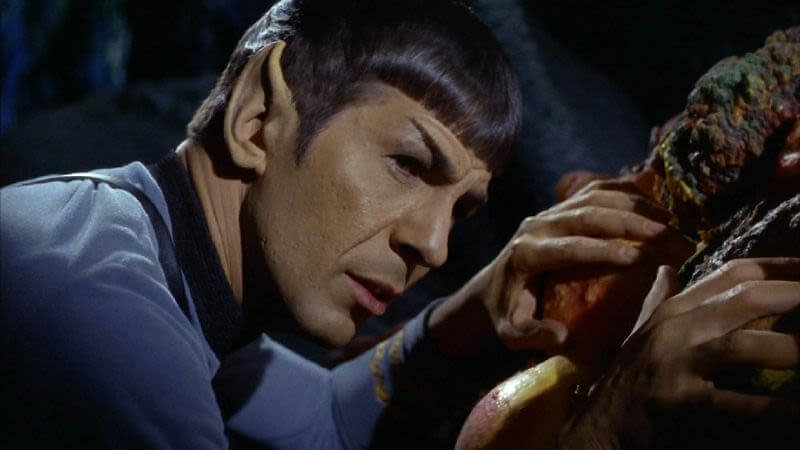
Creator Gene Roddenberry’s “Wagon Train to the stars” is one of the finest examples of pulp storytelling—emotion first, logic eventually—ever brought to the small screen. From 1966 to 1969, Captain James T. Kirk (), first officer Spock (), chief medical officer Leonard “Bones” McCoy (DeForest Kelley), and the rest of the crew of the Starship Enterprise traveled the galaxy, “to seek out new life and new civilizations, to boldly go where no man has gone before.” They struggled against aliens of unimaginable power, stumbled over worlds whose civilizations mirrored Earth’s own troubled past, and, yes, romanced their fair share of space babes. Over the course of three seasons and 79 episodes, Star Trek ranged from suspense to comedy to tragedy, and in the end, the good guys always won, even if victory cost them a little more than they were willing to spend. []

Deep Space Nine is the only Trek series it’s possible to recommend in its entirety without any caveats. The show premiered with remarkable confidence in 1993 and only improved with age. While the previous series followed spaceships exploring the galaxy (and seldom staying to clean up the messes they make), DS9 takes place on a space station at the edges of Federation territory. If TOS was “Wagon Train to the stars,” then DS9 was “Gunsmoke in space,” a show set on the fringes of civilization centered on officers who must occasionally bend the rules to get things done. In the excellent premiere, “Emissary,” a wormhole opens a passage to the unexplored Gamma Quadrant and turns DS9 into a crucial trading post. Built up during the first five seasons, a massive war officially kicks off in the season five finale, “Call To Arms,” leading to heavy serialization across the show’s final two seasons. []
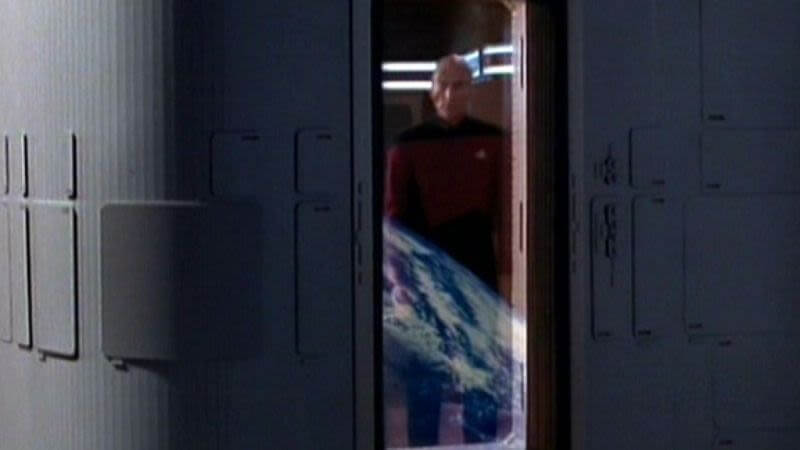
Thanks to Star Trek’s growing popularity, Gene Roddenberry and Paramount Pictures made the unprecedented decision to reboot the series as a brand new TV show. Star Trek: The Next Generation (also known as TNG or The Next Gen) debuted in 1987 and marked the beginning of almost two decades of Trek on TV. Set in the 24th century, 100 years after the original, the show followed a brand new crew aboard the Enterprise. Where TOS focused on space adventures, TNG emphasized negotiations, diplomacy, and headier storytelling. To alleviate the redshirt jokes, commanders on this Enterprise now wore red while security and engineering wore gold (doctors stayed in blue). Replacing the macho Captain Kirk was the more thoughtful, philosophical Captain Jean-Luc Picard (Patrick Stewart). Stewart quickly became TNG’s secret weapon and his Shakespearean gravitas single-handedly elevated the quality of episodes like “” and “.” The often-austere Picard kept his crew at an emotional distance, yet his love of history and literature and his occasionally cheeky sense of humor gave the character a softness. []
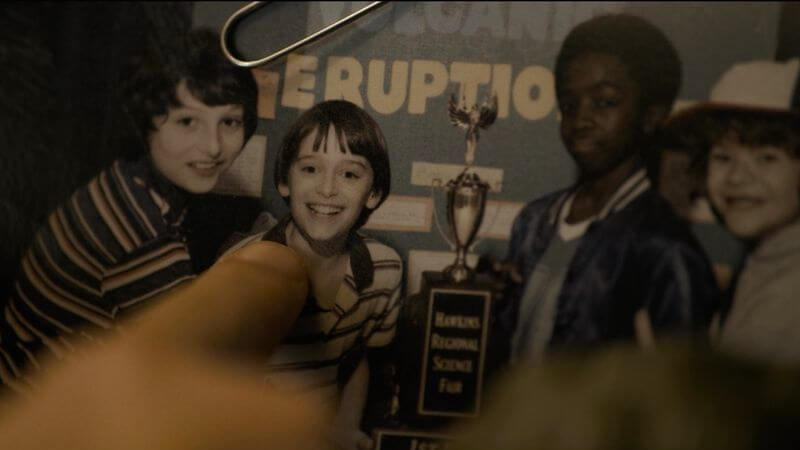
This family-friendly ode to the ’80s is actually a supernatural thriller wrapped in nostalgia, a format that lends itself nicely to the ensemble cast and to Matt Ross Duffer’s alternate universes, which are promptly turned upside-down. Stranger Things combines all the retro alien-thriller could-have-beens and neatly draws them out into eight-episode seasons. In addition to being spine-tinglingly well-paced, the Netflix sci-fi drama boasts several great performances, including Winona Ryder as Joyce Byers, a seemingly anxious mother who frantically searches for her son as she learns just how twisted Hawkins, Indiana is. It’s also the rare show whose historical accuracy is one of its most attractive features. []
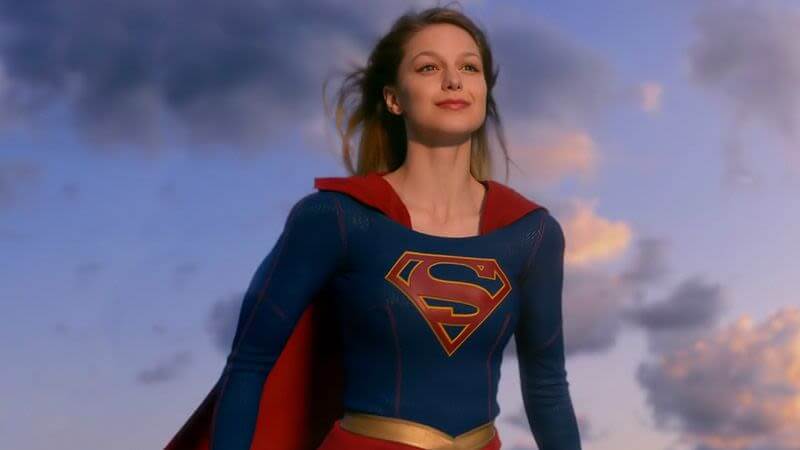
The Supergirl viewers meet in the pilot of this new CBS superhero drama is recognizably the same character who first appeared in Action Comics so many years ago: Kara, Superman’s cousin, good-hearted and optimistic to a fault. The misguided conventional wisdom that makes recent versions of her cousin such a dour mess on the big screen is nowhere to be seen here, and that’s for the best. Many have tried to change Supergirl over the years, but it never sticks. Supergirl doesn’t glower or brood, and she couldn’t do grim-and-gritty if her life depended on it. She smiles, dammit. Melissa Benoist smiles, too, and her guileless performance as the Girl Of Steel is enough to elevate what could otherwise have been a fairly pro forma exercise into something a lot more compelling. []
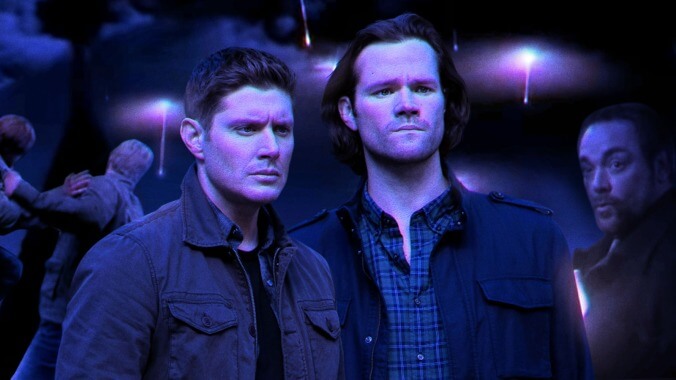
Supernatural, in its own odd and unexpected way, has been the defining show of The CW. It’s never been the water-cooler series, generating heat for the network the way zeitgeist-penetrating shows like Gossip Girl, The Vampire Diaries, or Riverdale. And it’s never been a ratings juggernaut, pulling down record numbers like its superhero programming has done in more recent years. But what it has done is endured. As the channel went through multiple revamps of its image, chasing various demos and genre trends while always keeping its overall focus on the young-adult market, Supernatural hung in there, year after year, cultivating a fiercely loyal fan base and—amazingly—hanging on to it, in a way few series have. Even Buffy The Vampire Slayer, whose fandom is nothing if not noteworthy for its ardor, had shed significant viewership by its final season, whereas the drops in Nielsen numbers experienced by Supernatural in the last couple seasons have more or less mirrored the across-the-board pattern of declining traditional TV viewership at large. Whether bringing in new viewers or hanging on to the old, Sam and Dean keep finding an audience. []
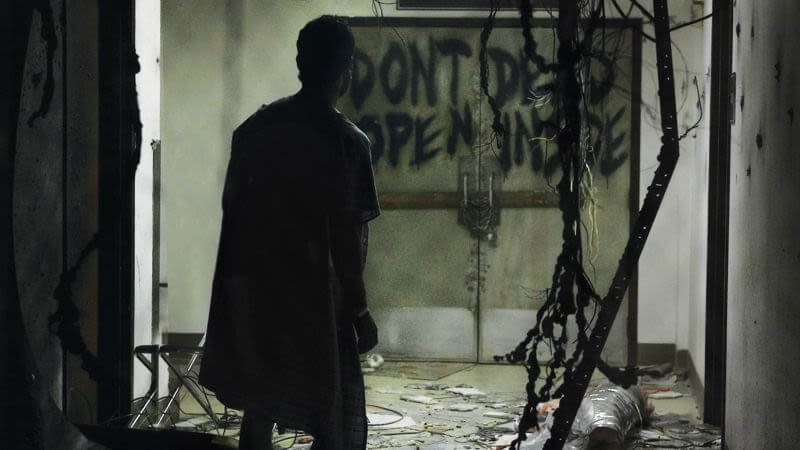
How many TV dramas have had better first episodes than ? Most television series should come with a pre-affixed warning label: “The pilot’s a little rough, but stick with it, the show gets better.” (Or even: “You’ll have to grind through the first season, but it’s worth it.”) But The Walking Dead arrived fully formed on AMC, on Halloween night of 2010. The premiere episode “Days Gone Bye” delivered 67 minutes of intimate human drama, pulse-pounding adventure, and literally jaw-dropping zombie horror. []
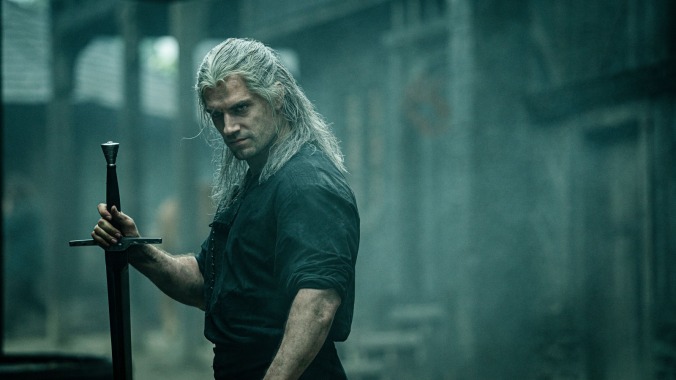
TV studios and streamers have been since pretty much the moment the HBO blockbuster first took flight. You’d be forgiven, then, for confusing Netflix’s lushly shot new fantasy epic The Witcher (adapted from the bestselling books by Polish author Andrzej Sapkowski, which also inspired the Witcher games developed by CD Projekt Red) for a deliberate knock-off of the more lurid and readily imitable aspects of the HBO juggernaut. At least, at first. The show’s pilot goes heavy on Westeros’ more meme-worthy aspects—swords, blood, gratuitous nudity, all suspended in a thick morass of “serious” moral ambiguity—giving every initial impression of having been taken in fully by this hindbrain-hitting surface illusion of easy genre success. What else are we to make of a series that opens with its monotone antihero of a protagonist—still awash in monster blood from his latest, flashily acrobatic kill—being led into an enchanted garden filled with nubile, nude, unspeaking women, while a pompous wizard mumbles backstory, exposition, and threats? When that same episode ends by intercutting between a brutal massacre, some ugly examples of mob mentality, and a full-on medieval mass suicide montage, the series begins to take on a tone verging on deliberate parody. Do you want Serious Fantasy TV? Rest assured, The Witcher screams, at full volume and directly into your face: This is some Serious Fucking Fantasy TV.But a closer look reveals this whole opening salvo as mostly bluster; it’s not hard to imagine some Netflix executive scribbling down notes on the show’s pilot, passing them to showrunner Lauren Schmidt Hissrich, and watching anxiously as she evaluated suggestions like “More boobs and throat stabbings, please.” But these growing pains mostly subside after the first, overly grim episode to reveal a far more interesting show—albeit one with its own, more honestly come by flaws. These are mostly imposed by convolutions that sequester the series’ three protagonists—the titular Witcher, Geralt Of Rivia (Henry Cavill); ascendant sorceress Yennefer of Vengerberg (Anya Chalotra); and imperiled princess Ciri (Freya Allan)—into three essentially separate shows. It’s a formula for frustration, gratification delayed so long that it threatens to spoil before ever being served. But when The Witcher actually does manage to get its various characters into close proximity with each other—something it studiously avoids doing for most of its first five episodes, to a degree that feels very nearly perverse—it manages to find some real magic in the chemistry between them, and in the twists it applies to old-fashioned tropes of fairytale magic. []
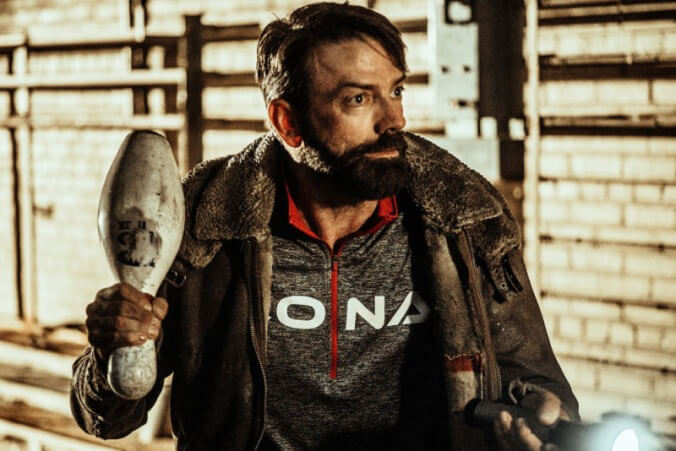
Another variant on the post-apocalyptic drama in which the undead are back and making life very difficult for the increasingly small remaining human population, Z Nation zags where zigs, going big and bonkers with broad comedy and gruesome effects alike as a multicultural band of survivors led by Lt. Roberta Warren (the charming Kellita Smith) come together several years after a zombie virus has wiped out most of humanity. Tasked with ferrying the sole immune human across the country to a CDC outpost, the group encounters one weird situation after another, making for a show that upends the dour conventions of the genre even as it treats its human drama with gravity. It’s gotten progressively smarter and more ambitious with each passing year, as the season-one hijinks transition into thoughtful sci-fi mystery in season four. []
 Keep scrolling for more great stories.
Keep scrolling for more great stories.
